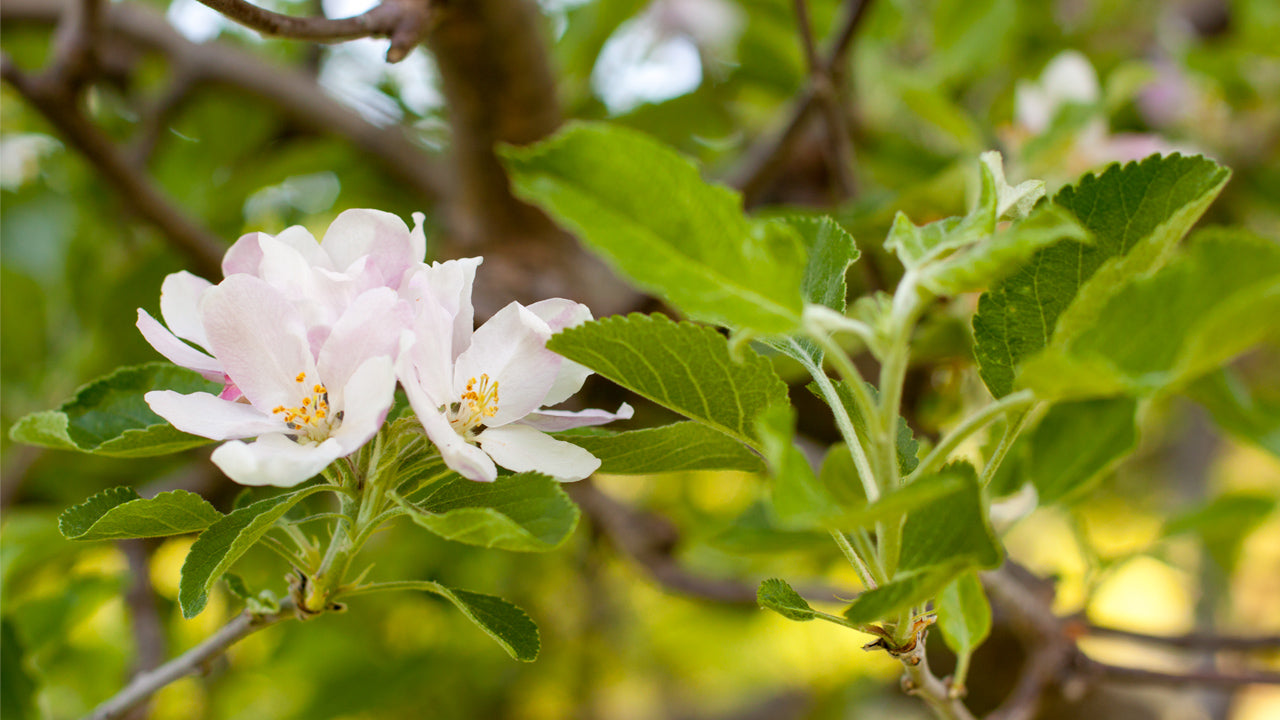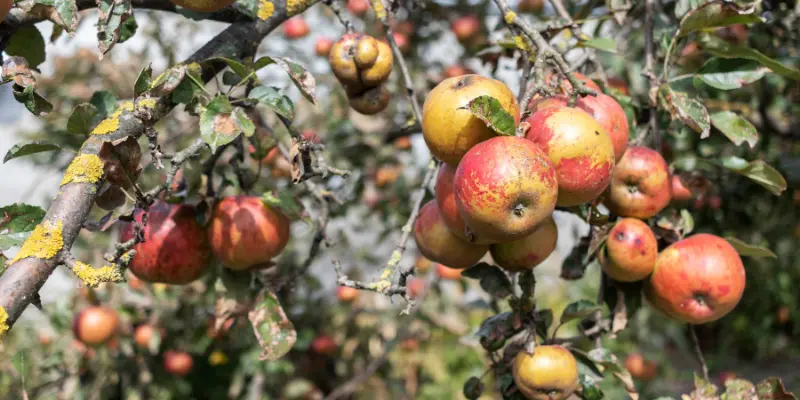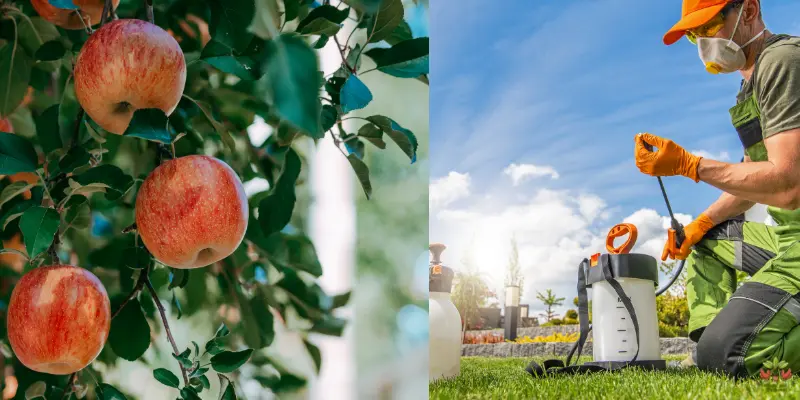The best fertilizer for apple trees typically includes macronutrients like Nitrogen, Phosphorous, and Potassium, as these nutrients are essential for the tree’s growth and development. Nitrogen promotes vegetative growth, while Phosphorous aids in root and blossom development.
Urea is a commonly used form of nitrogen for foliar application on apple trees. It’s important to choose a fertilizer that meets the specific needs of the apple tree, and water-soluble options like Stark® Tre-Pep® fertilizer are formulated specifically for young apple trees.
Table of Contents
Understanding Fertilizer For Apple Trees
When it comes to growing healthy and fruitful apple trees, understanding the importance of the right fertilizer is crucial. Apple trees require specific macronutrients to thrive and produce an abundant harvest. In this section, we will explore the macronutrients necessary for apple trees and help you choose the right fertilizer to ensure your trees’ optimal growth.
Macronutrients For Apple Trees
Macronutrients are vital elements that apple trees need in larger quantities to meet their nutritional requirements. The three primary macronutrients necessary for apple trees are:
| Nutrient | Role |
| Nitrogen (N) | Encourages vegetative growth, including the development of leaves and branches. |
| Phosphorus (P) | Promotes root development and aids in blossom formation. |
| Potassium (K) | Enhances overall tree health and strengthens its ability to fight against diseases and pests. |
By ensuring the presence of these macronutrients in your apple tree’s fertilizer, you can optimize its growth and productivity.

Credit: www.groworganic.com
Choosing The Right Fertilizer
Now that you understand the importance of macronutrients, it’s essential to choose the right fertilizer for your apple trees. Consider the following factors when selecting a fertilizer:
Top Fertilizer Options For Apple Trees
For optimum growth and productivity, apple trees require a fertilizer rich in nitrogen (N), phosphorous (P), and potassium (K). Urea is a commonly used nitrogen fertilizer for apples, while phosphorus aids in root and blossom development.
To ensure the health and productivity of your apple trees, choosing the right fertilizer is crucial. Apple trees require specific nutrients like nitrogen, phosphorous, and potassium to thrive. In this section, we will explore the top fertilizer options for apple trees and their benefits.
| Fertilizer | Price | Retailer |
| TreeHelp Premium Fertilizer | $14.95 | Amazon.com |
| Dr Earth Natural Wonder Organic Premium Fruit Tree Fertilizer | $15.97 | Amazon.com |
| Jobe’s Organic Fruit & Citrus Fertilizer | $8.99 | Amazon.com |
| Miracle Gro Fruit & Citrus Plant Food Spikes | $11.48 | Amazon.com |
Below, we will delve into the details of these top fertilizer options for apple trees:
Treehelp Premium Fertilizer
TreeHelp Premium Fertilizer is a highly recommended fertilizer for apple trees. It provides a balanced blend of nutrients, including nitrogen, phosphorous, and potassium, to promote healthy growth, strong roots, and abundant fruit production. Its slow-release formula ensures that the nutrients are released gradually over time, allowing for consistent nourishment.

Dr Earth Natural Wonder Organic Premium Fruit Tree Fertilizer
For those looking for an organic option, Dr Earth Natural Wonder Organic Premium Fruit Tree Fertilizer is a great choice. Made from natural ingredients, it enriches the soil with essential nutrients, microorganisms, and beneficial fungi. This helps to improve the soil structure and enhance nutrient absorption, leading to healthier apple trees and more vibrant fruit.
Jobe’s Organic Fruit & Citrus Fertilizer
Jobe’s Organic Fruit & Citrus Fertilizer is another organic option that apple tree owners can consider. This fertilizer is specially formulated for fruit trees, including apple trees, and is rich in essential nutrients like nitrogen, phosphorous, and potassium. It promotes overall plant health, encourages blooming, and increases fruit production.
Miracle Gro Fruit & Citrus Plant Food Spikes
Miracle Gro Fruit & Citrus Plant Food Spikes are a convenient and easy-to-use option for feeding apple trees. These spikes are inserted into the soil around the tree, gradually releasing nutrients directly to the roots. They contain a balanced mix of nutrients, including nitrogen, phosphorous, and potassium, to support the growth and development of apple trees.
When choosing the best fertilizer for your apple trees, consider factors such as the nutrient composition, organic or synthetic nature, and ease of use. Remember to follow the manufacturer’s instructions for application rates and timing to ensure optimal results for your beloved apple trees.
Tips For Fertilizing Apple Trees
Fertilizing apple trees at the right time is crucial for their overall health and productivity. Ideally, you should fertilize apple trees during their dormant season, which is usually in late winter or early spring before new growth begins. This allows the tree to absorb the nutrients and use them efficiently when the growing season starts.
Proper application of fertilizer is essential to ensure that apple trees receive the necessary nutrients. Start by determining the tree’s specific nutrient needs through soil testing. This will help you choose the right fertilizer blend with the appropriate ratio of Nitrogen (N), Phosphorous (P), and Potassium (K).
To apply the fertilizer, follow these steps:
Step 1
Carefully measure the recommended amount of fertilizer according to the package instructions.
Step 2
Apply the fertilizer evenly around the drip line of the tree, which is the area beneath the outer edge of the branches where water would typically drip during rainfall.
Step 3
Avoid placing the fertilizer directly against the tree trunk, as it can cause damage.
Step 4
After applying the fertilizer, lightly rake it into the topsoil to encourage proper absorption.
Step 5
Water the area thoroughly to help the nutrients reach the tree’s roots.
While fertilizing apple trees, it’s important to avoid common mistakes that can hinder their growth and development. Here are some mistakes to be aware of:
- Overfertilizing: Applying excessive amounts of fertilizer can lead to nutrient imbalances and can even burn the tree’s roots. Always follow the recommended guidelines for the specific fertilizer you are using.
- Underfertilizing: Neglecting to fertilize apple trees can result in nutrient deficiencies, affecting their overall health and yield. Be sure to provide them with an adequate amount of nutrients.
- Using the wrong fertilizer: Different apple tree varieties require different nutrient ratios. Using a fertilizer that is not suitable for your specific tree can lead to poor growth and fruit production. Do your research and choose a fertilizer formulated for apple trees.
- Applying fertilizer near the trunk: Placing fertilizer directly against the tree trunk can cause harm to the bark and roots. Always apply it around the drip line instead.
- Not testing the soil: Soil testing is essential to determine the nutrient needs of your apple trees. Without this information, you may unintentionally over or under-fertilize, leading to imbalances.
By following these tips for fertilizing apple trees and avoiding common mistakes, you can provide your trees with the necessary nutrients for healthy growth, abundant fruit production, and overall vitality.
Frequently Asked Questions Of Best Fertilizer For Apple Trees
What Fertilizer Should I Use For Apple Trees?
For apple trees, use a fertilizer with Nitrogen (N), Phosphorous (P), and Potassium (K) to promote growth and development. Urea is commonly used for foliar application on apples. Apply water-soluble Stark® Tre-Pep® Fertilizer for young apple trees.
Which Fertilizer Is Best For Apple?
The best fertilizer for apple trees should contain macronutrients like Nitrogen, Phosphorous, and Potassium. Nitrogen promotes vegetative growth, while Phosphorus aids root and blossom development. Urea is commonly used for foliar application on apples and pears, but not on stone fruits.
Water-soluble fertilizers like Stark® Tre-Pep® are suitable for young apple trees.
Is 16 16 16 Fertilizer Good For Fruit Trees?
Yes, 16-16-16 fertilizer is good for fruit trees as it provides a balanced ratio of essential nutrients like Nitrogen, Phosphorous, and Potassium, which promote healthy vegetative growth, root development, and blossom formation.
What Is 10 10 10 Fertilizer Good For?
10-10-10 fertilizer is good for apple trees because it provides the necessary macronutrients, like Nitrogen (N), Phosphorous (P), and Potassium (K), which promote vegetative growth, root development, and blossom development. It is a balanced fertilizer that can help apple trees thrive.
Conclusion
To ensure the health and productivity of your apple trees, choosing the right fertilizer is crucial. Look for a fertilizer that is rich in macronutrients such as Nitrogen (N), Phosphorus (P), and Potassium (K). These nutrients promote vigorous growth, root development, and blossom production.
While urea is commonly used for foliar application on apples and pears, it may not be suitable for stone fruits. Consider using water-soluble fertilizers like Stark® Tre-Pep® specially formulated for young fruit trees. By providing your apple trees with the proper nutrients, you can maximize their potential and enjoy a bountiful harvest.


![Terrifying Trend: Why Do Roosters Chase Humans? [2024]](https://plantsandchickens.com/wp-content/uploads/2024/02/why-do-roosters-chase-humans-4.webp)


Leave a Reply